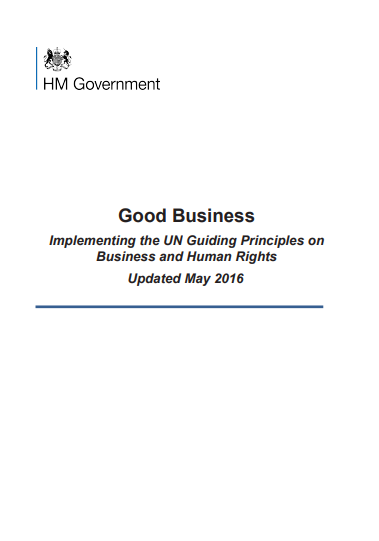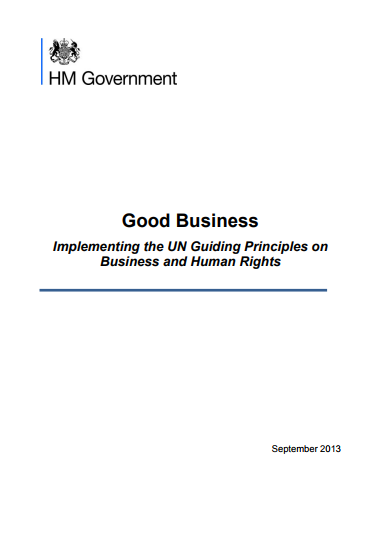The update of the UK’s National Action Plan on Business and Human Rights was published on the 12 May 2016 and reflects the broad range of activity and engagement which takes place across a large number of government departments. This update reaffirms the UK’s commitment to the implementation of the United Nations Guiding Principles (UNGP) on Business and Human Rights, and acknowledges the duty of government but also sets out our expectation that UK businesses will act responsibly and in accordance with the UNGPs, wherever they operate.
Introduction
Companies increasingly understand that there is a business case for respect for human rights and that this brings business benefit in various ways, by:
– helping to protect and enhance a company’s reputation and brand value;
– protecting and increasing the customer base, as consumers increasingly seek out companies with higher ethical standards;
– helping companies attract and retain good staff, contributing to lower rates of staff turnover and higher productivity, and increasing employee motivation;
– reducing risks to operational continuity resulting from conflict inside the company itself (strikes and other labour disputes), or with the local community or other parties (social licence to operate);
– reducing the risk of litigation for human rights abuses;
– appealing to institutional investors, including pension funds, who are increasingly taking ethical , including human rights, factors into account in their investment decisions;
– helping companies to become a partner/investor of choice for other businesses or governments that are concerned to avoid human rights risks;
Companies have told us that they need from the Government policy coherence and clear and consistent policy messaging. They need certainty about the Government’s expectations of them on human rights, and expect support in meeting those expectations.
This action plan aims to meet those needs. It sets out how the Government has responded to the UNGPs and our plans for further work to:
– implement UK Government obligations to protect human rights within UK jurisdiction where business enterprises are involved.
– support, motivate and incentivise UK businesses to meet their responsibility to respect human rights throughout their operations both at home and abroad;
– support access to effective remedy for victims of human rights abuse involving business enterprises within UK jurisdiction;
– promote understanding of how addressing human rights risks and impacts can help build business success;
– promote international adherence to the UN Guiding Principles on Business and Human Rights (UNGPs), including for States to assume fully their duties to protect human rights and assure remedy within their jurisdiction;
– ensure policy consistency across the UK Government on the UNGPs.
The UNGPs are structured around three pillars: the State duty to protect human rights; the corporate responsibility to respect human rights; and access to remedy. For ease of use, this action plan follows that structure. Throughout this document we talk of British or UK companies and businesses and business enterprises by which we mean all business enterprises domiciled in the UK.


